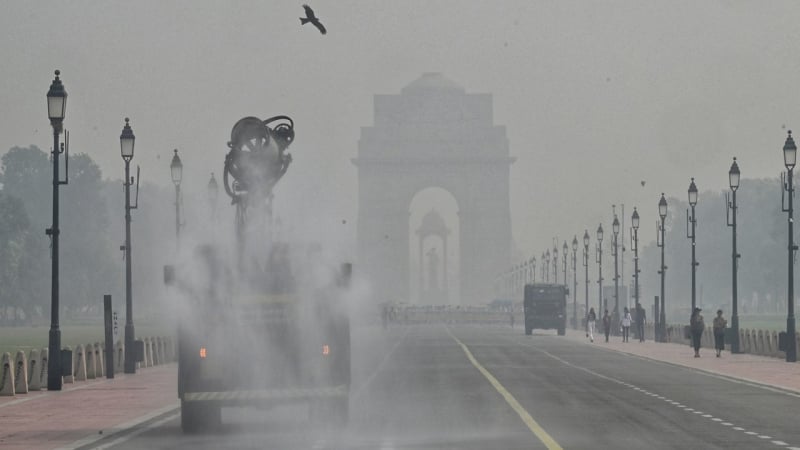
After a long time, there has been a lot of improvement in the AQI of the national capital Delhi. Delhi’s 24-hour average AQI has fallen from ‘very poor’ to ‘poor’ category. The 24-hour average AQI was recorded at 279 at 7 am, much lower than 300. This is the first time after Diwali that the AQI is in the “weak” category. However, some stations are still in the “very weak” range, but most are in the 200-300 range (weak range).
According to the Central Pollution Control Board (CPCB), the final average AQI of the day will come at 4 pm today, but the average air quality in the morning is comfortable. According to the CPCB bulletin, the 24-hour average AQI on November 24 was 318, which is the second cleanest AQI this month after November 2. Earlier on November 2, AQI 316 was recorded. Let us tell you that due to strong winds, the sky was clear and air quality improved and a slight increase in temperature was observed.
Average AQI of Delhi is 318
According to CPCB, AQI is still in the ‘very poor’ category in many areas of Delhi. At 7 am, AQI was recorded at 308 in Delhi’s Bawana, Alipur, 333 in Sonia Vihar, 334 in Anand Vihar and 330 in Wazirpur. But, AQI is still above 300 at most places in Delhi. According to CPCB data, the average AQI in Delhi was recorded at 279 on November 25 (7 am). Apart from this, AQI is still above 350 at many places. People are facing many types of health problems due to pollution. At the same time, there was a layer of smog in many parts of the capital.
AQI at 7 am in other areas of NCR
- Noida- 202
- Ghaziabad- 194
- Greater Noida – 200
- Gurugram- 217
How is air quality measured?
An area is considered ‘good’ if its AQI is between zero and 50, ‘satisfactory’ if it is between 51 and 100, ‘moderate’ if it is between 101 and 200, ‘satisfactory’ if it is between 201 and 300. Is. If the AQI of that area is considered ‘bad’. If the AQI is between 301 to 400, it is considered to be in the ‘very poor’ category and if the AQI is between 401 to 500, it is considered to be in the ‘severe’ category. Air pollution can cause many types of diseases. Based on that, restrictions on grape category have been imposed in Delhi-NCR.
measures to prevent pollution
To avoid pollution, cover your mouth and nose properly or wear a mask when you go out. Wear glasses before going out to avoid eye allergies. Use air purifier at home in case of excessive pollution. Also, children and elders of the house were stopped from going out. In such a situation, while going to the park to play, ask the children to play indoor games at home. If you go for a walk in the morning and evening, do not go out for a few days, otherwise you may face difficulty in breathing due to excessive pollution.
 look news india
look news india